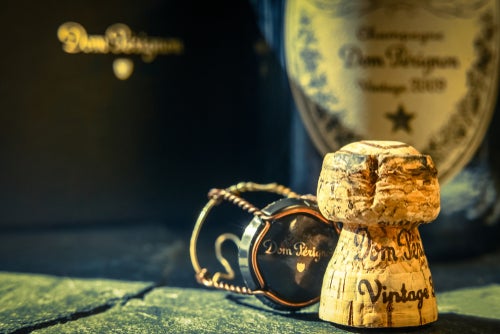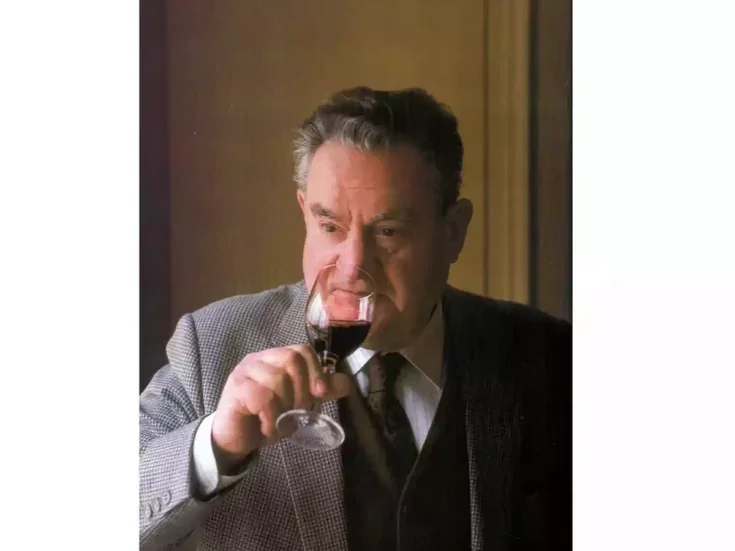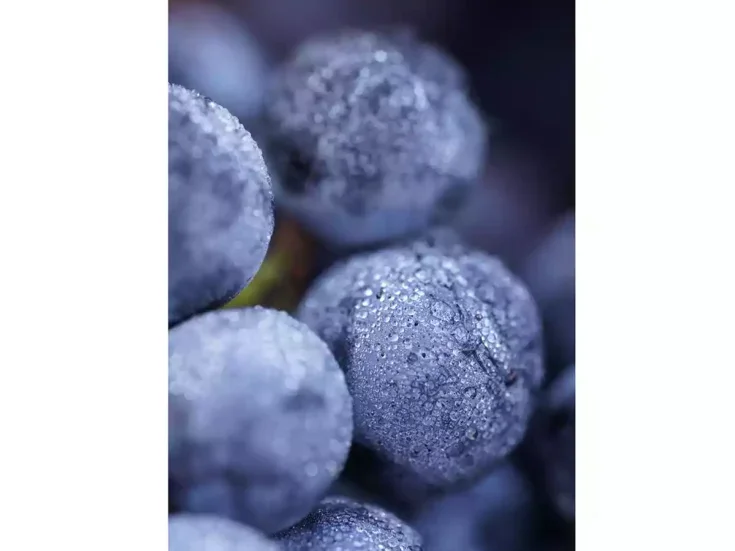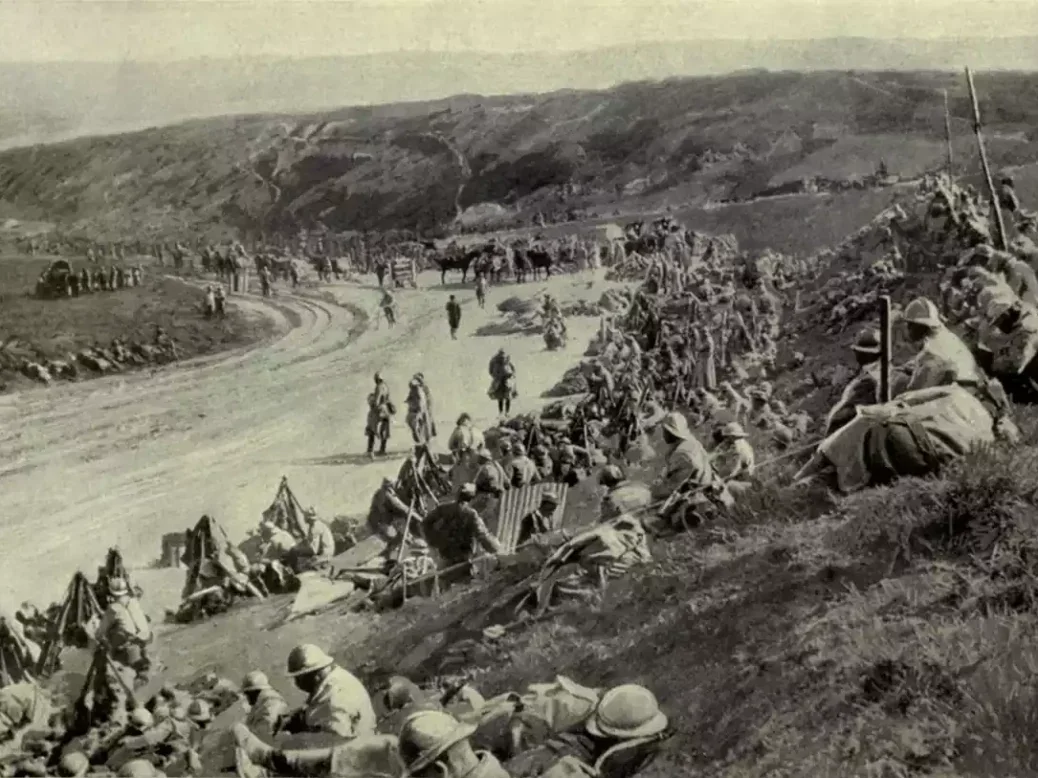
Stuart Walton reviews A Thirst for Wine and War: The Intoxication of French Soldiers on the Western Front by Adam D Zientek.
A growing body of literature has questioned whether the conduct of war is at all conceivable without the psychotropic conditioning of those expected to fight it. Roman legions took wine rations with them on campaign, the empire’s forces planting vineyards in conquered territories wherever they would grow. English soldiers fighting on the European mainland in the Thirty Years’ War of the early 17th century took to aping their Netherlandish adversaries, at least in popular apocrypha, by drinking the local distillate, genever, preparatory to battle; it later became “Dutch courage.” World War II was sustained at least as much on dispensations to combatants of amphetamine and methamphetamine as it was by the countervailing urges to conquest and resistance. What are these urges, indeed? How can they be mobilized and sustained through long months and years of siege and privation, without intoxicants?
These microhistories of the prosecution of war chime with the turn to materialist approaches to history itself. To locate the sources of collective consciousness, we must dig deeper than cultural roots to the rhizomatic origin of culture in habits of consumption, the self-fashioning that comes about through what people eat and drink and take. The histories of intoxication are fascinating not least for the two-way process they set up between the uses of psychoactive substances and the identities of those societies that use them. Does the use of certain plants, such as coffee or tobacco, trigger particular cultural development, or is it expressive in itself of the cultural habitus of those who consume them? And what happens when their consumption becomes a matter of official prescription for ideological purposes?
Wine and war: The encouragement of alcohol
These considerations lie at the heart of an excellent and burgeoning series from the McGill-Queens academic press of Montreal, “Intoxicating Histories,” to which A Thirst for Wine and War, by UC Davis historian Adam Zientek, represents a major contribution. Zientek’s focus is on the use of wine and eau-de-vie by French troops fighting—and furloughing—on the Western Front of World War I. Through the encouragement of alcohol consumption, administered by means of a daily dole, combatants embroiled in the vicious stalemate of the French theater of war were manipulated into a state of battle-readiness and also medicated against the losses, the suffering, and the relentless squalor that characterized battle itself. It is both a cautionary tale and one that turns up repeated examples of heroic self-abandonment, even of disorderly defiance of the martial imperatives that had foisted the death engine of the Great War on Europe in the first place.
The tale that Zientek tells with admirable narrative drive in A Thirst for Wine and War traces an improbable trajectory in official attitudes to soldiers’ drinking. France, though it seems scarcely credible now, was at the forefront of temperance campaigns at the turn of the 20th century. Cautionary tales abounded of the baleful effects of alcohol on troops’ esprit de combat, including conscripts carrying out national service. In the wake of the seventh international conference on alcohol abuse in Antwerp in 1899, Army chiefs resolved to inculcate the virtue of abstinence among fighting men. A French soldier should be nothing if not a model of Spartan self-restraint.
The austerity of this moral vision barely survived the first weeks of hostilities in 1914. Drink follows fighting forces like a faithful hound its master, and even before the outbreak of the war, local bars known as débits had already begun to spring up in the immediate vicinity of the military bases. To neutralize their lure, the army set up retail cooperatives for the use of soldiers, at which they were served measured quantities of wine. These were resented from the beginning, as were lecture courses on the dangers of alcoholism that were programmed for the men’s entertainment during the inclement winter weather.
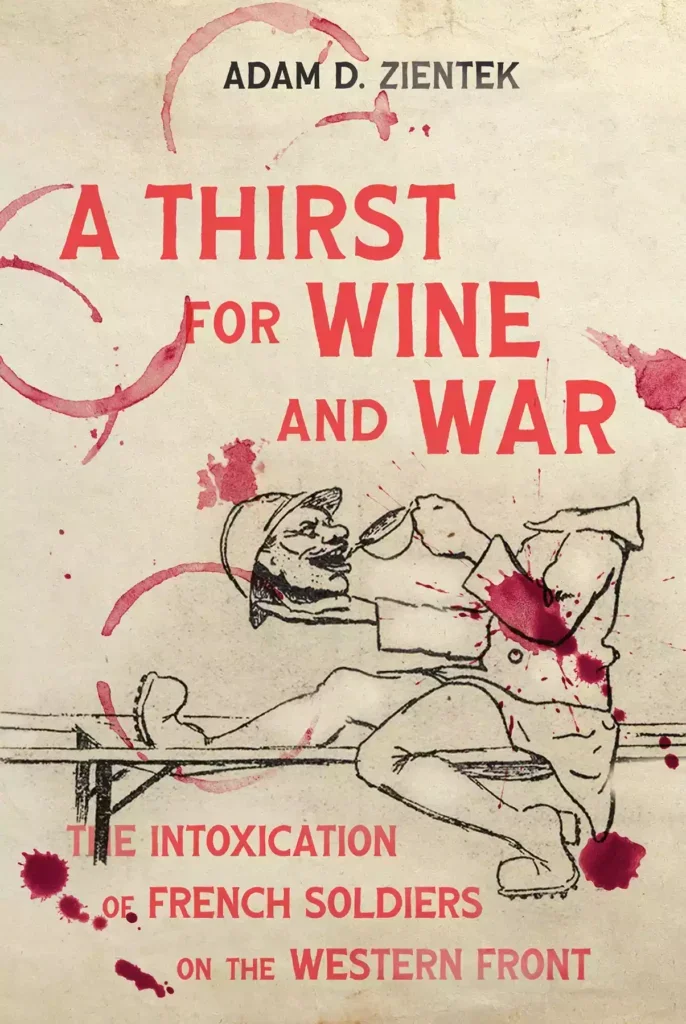
In the early months of the war, troop divisions engaged in opportunistic drinking, availing themselves of the odd cache of wine left abandoned in looted villages or gratefully accepting what was offered from the meager cellars of the locals. To put such provision on a regular footing, winemakers banded together to foment the vin aux soldats campaign, earmarking a proportion of their production for soldiers in the field. A journalistic article of October 1914 by winemaker Louis Martin, urging the national War Ministry to consider instituting a daily ration of wine to the troops, was met with favor, its provision conforming with the cultural narrative that wine was the patrimony of every French citizen. The first distributions were effected the following month.
Wine would be provided to the French soldier for the remaining four years of hostilities. And not just wine. Although there had long been a comparative typology in France as between nutritious, heroic wine and the soul-sapping corrosion of distilled liquor, in practice both would be issued to the troops, the former known as pinard in the argot of the day, the latter as gnôle. A failed experiment at mixing wine with cider was dismissed with all the contempt one would expect in a French patriot, and throughout most of the war, it was up to the individual soldier how he consumed his ration. A gulp or two of raw spirit before going directly into combat was a customary recourse, but sometimes the eau-de-vie was dispensed to the men as an apéritif, a metabolically shocking pathfinder for the subsequent course of soothing wine through the body.
Alcohol was the agent that both energized soldiers with combative valor and reconciled them to their endurance of the horror. It provoked the lethal conduct to which it then became the antidote. Civilians were ordered to cut their own wine consumption by two thirds to leave enough for provisioning the army. Lest anybody see the alcohol system as entirely cynically manipulative, though, Zientek devotes two chapters of this study to the periodic outbreaks of mutiny and revolt among divisions on deployment and among those on leave. If the miserable quality of much of the wine did not escape notice in the early stages of the war, by 1917 these eruptions of disorder were specifically about the existential misery of the war itself. When would it end? What right had officers to keep sending exhausted and demoralized men—who had already seen enough atrocity to last them a lifetime—back to the front?
Zientek’s diligent scrutiny of the military records shows how these riotous acts of dissent, which were always galvanized by drinking, were occasionally allowed to unfold. It was often considered more dangerous to suppress them, and in any case, invariably, they dissipated like the smoke of artillery fire in the hours after the fracas as the men sobered up. It remains one of the ghastliest aspects of the pathos of World War I that shattered men kept obediently returning to the trenches. In the recorded cries of revulsion of drunken men in the records of the revolts, there is every lineament of a principled rebellion against the clash of imperialisms, which rode roughshod over the suffering of individual men and their families. But the fury always wore off with the hangover.
Gladiatorial spirit and comfort
The wine ration continued in France throughout the years between the world wars. As the 20th century progressed, other psychoactive agents would come to play an integral role in combat. German combatants fighting for the Third Reich were treated to D-IX, a cocktail of cocaine, methamphetamine, and synthetic opioid that would have been a resounding hit on the inner-city street scene if it had continued to be manufactured throughout the peace. Zientek copiously cites the best comprehensive history of intoxicants in warfare, Łukasz Kamieński’s Shooting Up (2016), to show that war is almost literally inconceivable without the alteration of consciousness. This does not indict intoxication itself as evil, only the uses to which it can cynically be put by authorities all too keen to deny it to their citizens when it no longer suits their purposes.
In the case of the wine and eau-de-vie issued to French soldiers during World War I, alcohol performed three functions, as Zientek eloquently shows: It inspired the gladiatorial spirit; it comforted the same spirit when it had been broken by what it was forced to witness and endure; and it lit up the path of fierce refusal when it all became too much. Had it, all but unimaginably, forced the Western Front to a juddering halt—from the fields of Flanders, to the slopes of the Vosges—it could even have been a sacrament of celebration that marked the defeat of belligerent nationalism. But nationalism would live to fight another day—fueled and relieved by drink and drugs once more.
A Thirst for Wine and War: The Intoxication of French Soldiers on the Western Front
Adam D Zientek
Published by McGill-Queens University Press; 272 pages; pbk $42.95, hbk $110 / £99

